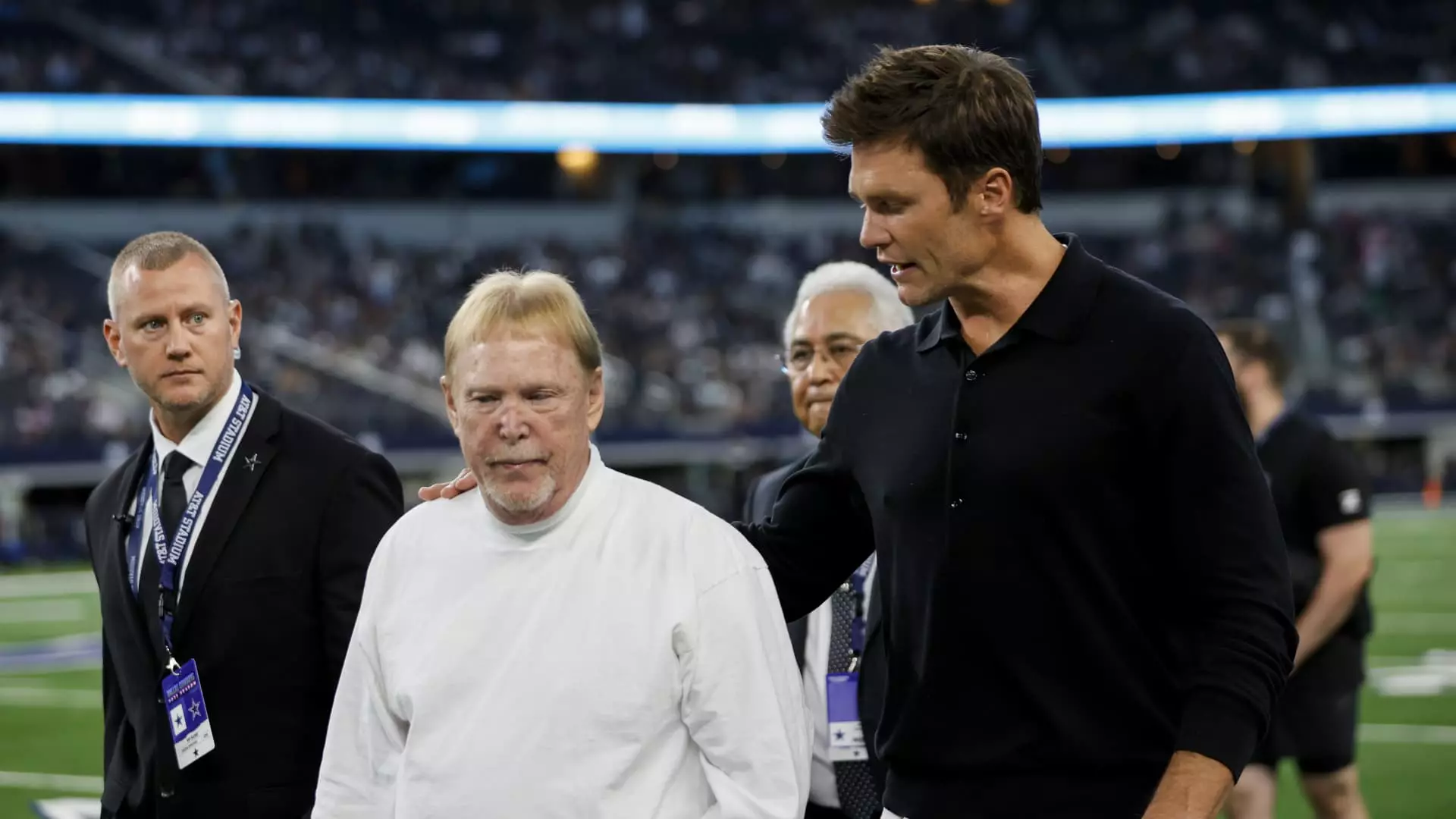In a significant move for both Tom Brady and the National Football League (NFL), owners have unanimously approved Brady as a minority owner of the Las Vegas Raiders. This decision marks a new venture for the retired quarterback, whose storied career included seven Super Bowl victories, capping him as one of the most decorated players in NFL history. As a result, Brady is acquiring approximately a 10% stake in the team alongside his business partner, Tom Wagner, the founder of Knighthead Capital. Their collective investment, amounting to around $220 million at a staggering team valuation of $3.5 billion, is a remarkable entrance into the realm of sports ownership.
While the $220 million investment may seem like a substantial amount, an interesting financial dynamic surfaces upon examining the broader valuation. The Raiders are pegged as the fifth-most valuable franchise in the NFL, with estimates of their worth soaring to $7.8 billion according to CNBC. This context suggests that Brady and Wagner secured their stake with an astonishing discount of over 50%. Typically, equity investments for minority partners without operational control range from discounts of 20% to 25%. This brings forth questions surrounding the negotiation tactics employed by Brady and Wagner, particularly considering that other owners initially hesitated, deeming the offer too discounted.
Moreover, a rather unconventional “flip tax” imposed on this purchase adds another layer to the financial transaction, diverting 10% of the sale proceeds to the league’s existing 31 owners. This points to an interesting and somewhat archaic element of NFL ownership structures that continues to exist even in modern valuations. It raises curiosity about how ownership stakes are perceived and valued among franchise owners, particularly in a rapidly evolving sports market.
The Raiders’ Transformation in Las Vegas
The Raiders underwent remarkable transformation following their relocation from Oakland to Las Vegas in 2020. Now, the team has regained financial prowess, reflected by a significant increase in revenue to $780 million, which placed them third overall in the league. This growth is indeed attributed predominantly to the new Allegiant Stadium, which, despite being one of the smallest venues in the league, compensates through the highest ticket prices sold in the league. This exceptional strategy—charging an average of $169 per general ticket—combined with hosting a variety of events like concerts and college football, showcases the versatility of the franchise’s revenue streams.
Brady’s new role may embark on diversification as the franchise capitalizes on its Las Vegas location and Allegiant Stadium’s multi-purpose facilities. By hosting numerous events year-round, the Raiders create opportunities that extend beyond simply NFL games, contributing to their bottom line. In fact, non-NFL events have generated over $50 million for the franchise this past year.
While the transition into ownership offers considerable opportunities, it is not without restrictions for Brady. His previous broadcast deal with Fox Sports, valued at $375 million over ten years, poses an interesting challenge to his capacity as a team owner. While he can commentate on Raiders games, he faces limitations on attending production meetings and direct access to team operations. Furthermore, adherence to NFL mandates, such as refraining from public criticism of officials and rival clubs, will test Brady’s ability to navigate the dual role of owner and commentator.
These unique stipulations underline a broader conversation in the sports world about player transitions from the field to ownership. Brady’s case is even more notable because he joins a select group—only the third former NFL player to hold a stake in a team, reflecting the challenges but also the potential for integrated sports identities for players post-retirement.
As Tom Brady steps into the ownership realm of the Las Vegas Raiders, his influence on the NFL is set to evolve once more. The intersection of sports, business, and personal brand is magnified with this investment. Brady’s legacy as an athlete shapes perceptions in this new venture, but how he maneuvers through the complexities of ownership will ultimately define his path away from the gridiron. The Raiders thus unlock a new chapter, potentially blending Brady’s football acumen with sound business practices, marking an exciting future for one of football’s greatest icons.

